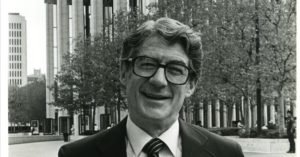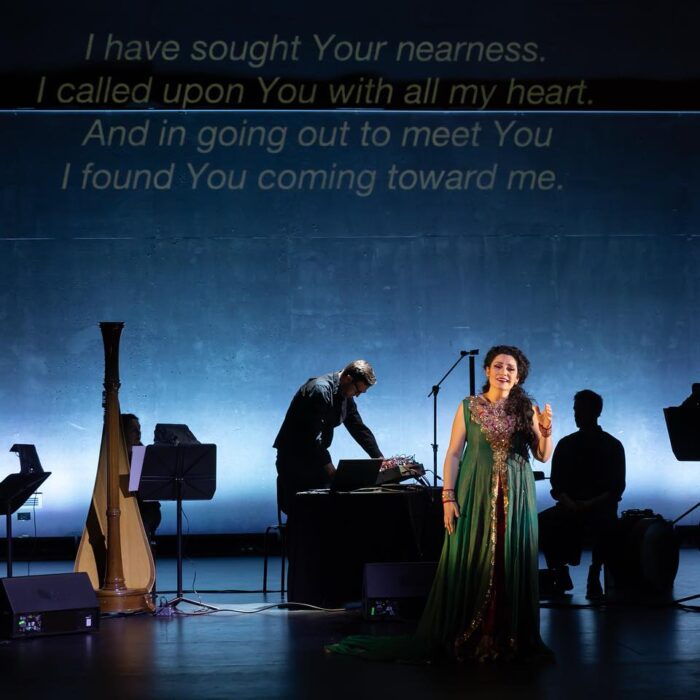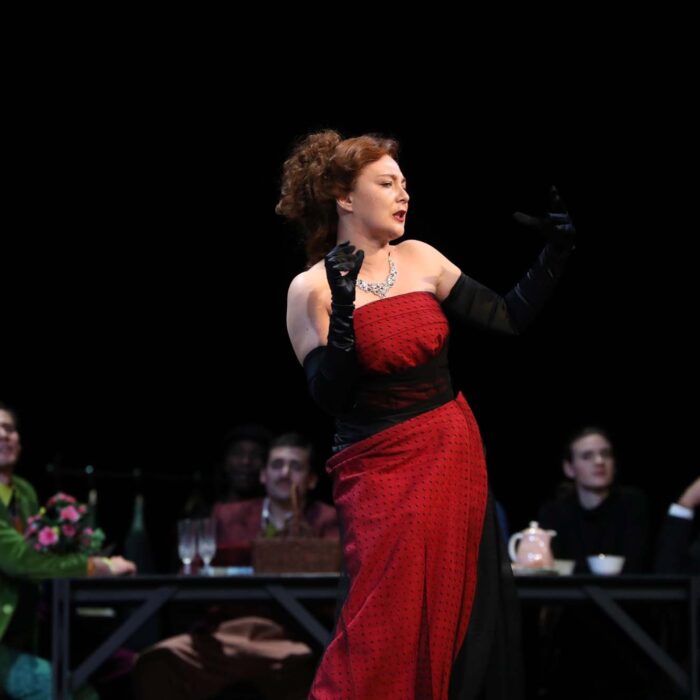
A Listener’s Tribute to Former Metropolitan Opera Broadcast Host Peter Allen
By Greg WaxbergPeter Allen was not simply “another voice” on the radio, but, rather, an exemplar of how to be a voice on the radio.
Allen, who passed away last October and would have turned 97 on September 17, spent 29 seasons in The Metropolitan Opera’s broadcast booth as host of the Saturday matinée radio broadcasts (1975-2004). He filled the airwaves with his beautifully deep, resonant voice, impeccable pronunciations, interesting background material, and, significantly, masterly interpretation of his script.
“Oral interpretation” goes beyond a straight reading of text—which might not produce any reaction in the listener—to a reading that will probably elicit an emotional reaction and draw the listener into what is being described. Unfortunately, many radio announcers read their scripts matter-of-factly. But not Allen. He infused his delivery with vocal inflection, pauses, changes in his speed of delivery, and emphasis on words and phrases, all of which brought his narrations to life.
For example, when narrating Scarpia’s murder on a broadcast of “Tosca,” Allen read, “…but as he approaches to claim her, she plunges a knife into him, crying ‘This is Tosca’s kiss!’” How did he read it? He emphasized “knife” and “this,” then added a hissing sound to “kiss.” He brought the script to life in a way that helped the listener feel the drama.
Occasionally, Allen shared his feelings about an opera. During curtain calls after Act II of a broadcast of “Der Rosenkavalier,” which ends with Baron Ochs smugly anticipating an evening rendezvous, he commented, “It’s always been perplexing to me how such a boor has such a lovely waltz, but, in the theater, it works.” And sometimes those feelings came out unexpectedly, such as when he began to laugh during a plot summary for “The Merry Widow,” when saying that Count Danilo—who, until that point, had refused to declare his love for the wealthy widow if she had money—would marry her “even with her money!”
His meticulous preparation for each broadcast was evident, particularly his explanations of operatic history and his descriptions of sets, costumes, and sounds—especially when he had to fill time. A broadcast of “Turandot” was delayed about seven minutes prior to Act II, so Allen gave a detailed description of the Met’s famous set. The previewing of sounds was helpful for a production of “Les Contes d’Hoffmann” that included Coppélius lunging around the stage on a crutch, the ratcheting of a winding key in Olympia’s back, and a sound (in Spalanzani’s workshop) that resembled static. In addition, singers praised Allen for taking the time to check on the correct pronunciations of their names.
A tribute to Allen would be incomplete without mentioning his work as an announcer for Met telecasts, the intermission features he presented on the broadcasts (following his 2004 retirement), and his contributions to the Metropolitan Opera Guild’s Talking About Opera series, with the “Ring” and “La Traviata.” In particular, the four-CD set that he researched, wrote, and narrated about “Der Ring des Nibelungen” is a masterpiece that provides endless enjoyment.
In a New York Times interview in 2000, marking his silver anniversary as broadcast host, Allen remarked, “With all those voices out there on the stage, to call me ‘the voice of the Met’ is very odd.” This observation was understandable, so let us say that he was “the radio voice of the Met.” For 29 years, the company, and its radio audience, were so fortunate to benefit from Allen’s talents.
Categories
Special Features

